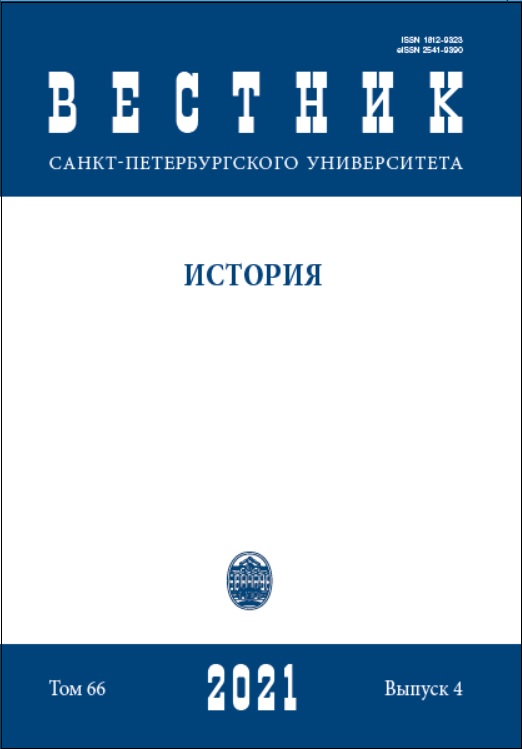Habsburg-Safavid diplomacy: Nicholas von Warkotsch and Haji Khosrow in Moscow
DOI:
https://doi.org/10.21638/spbu02.2021.406Abstract
During the 16th century, several European states were regularly engaged in forming an anti-Ottoman alliance. The goal was to cooperate on the elimination of the Ottoman power and expansion in Europe. In addition, traditional European members of the anti-Ottoman league (the Papal State, the Spanish and Austrian Habsburgs, Venice) were counting on the help of the Eastern empires such as the Tsardom of Muscovy (Russia) and the Safavid Persia. In connection with this policy, Habsburg–Safavid diplomatic relations continued to develop. In the second half of the 1580s and 1590s, the Tsardom of Muscovy began to play an important mediating role in the context of Habsburg–Persian relations. An illustrative case is the presented study, which deals with the missions of Habsburg envoy Nicholas von Warkostch and the Safavid (Persian) envoy Azi Khosrow to the court of the Russian Tsar Fyodor Ivanovich in 1593. This issue is brought up on the background of a broader international politics and diplomacy in the second half of the 1580s and the beginning of 1590s. Regarding their missions to Russian Tsar, both envoys took advantage of their mutual presence at the Muscovite court and through the mediation of Boris Godunov managed to arrange a meeting, where they negotiated the possibility of the formation of an anti-Ottoman alliance. The analysis of the preserved archival and published documents concerning the above-mentioned missions reveals the goals and attitudes of all negotiating parties (Habsburgs, Persia, and Muscovy) in relation to the creation of an anti-Ottoman alliance.
Keywords:
diplomacy, anti-Ottoman alliance, 16th century, Tsardom of Muscovy, Habsburg monarchy, Safavid Empire
Downloads
Downloads
Published
How to Cite
Issue
Section
License
Articles of "Vestnik of Saint Petersburg University. History" are open access distributed under the terms of the License Agreement with Saint Petersburg State University, which permits to the authors unrestricted distribution and self-archiving free of charge.





